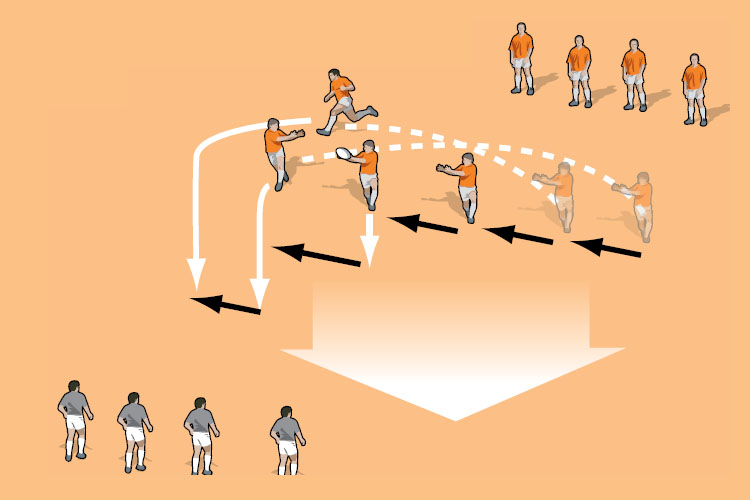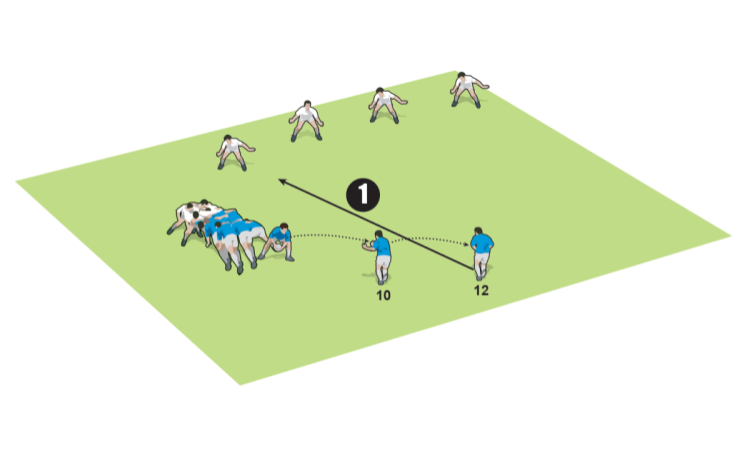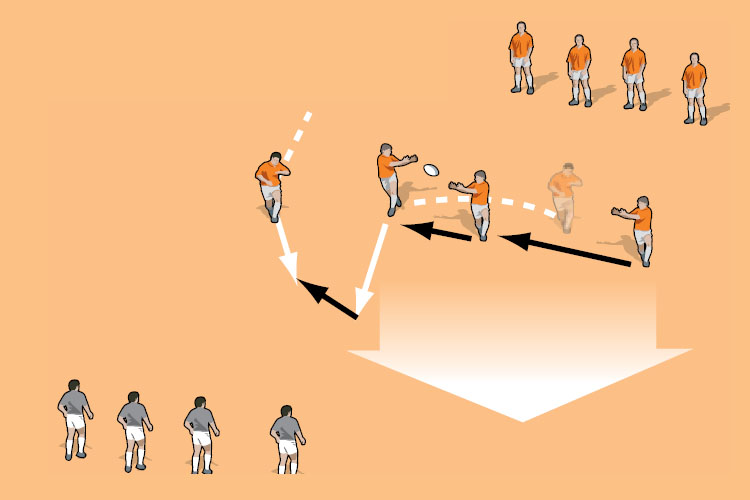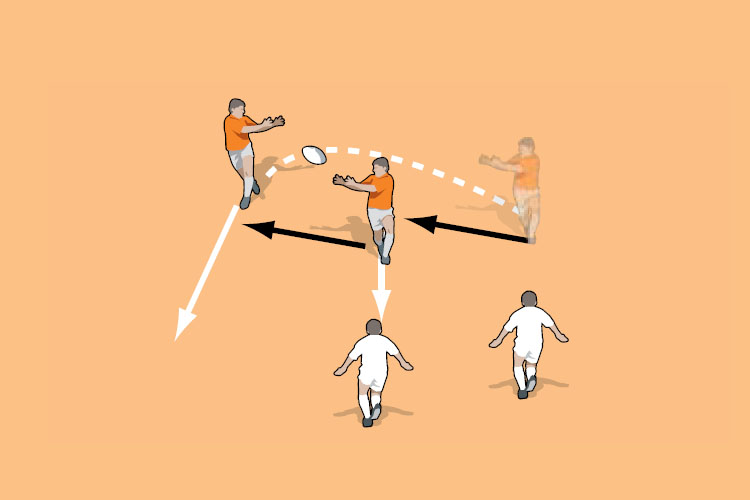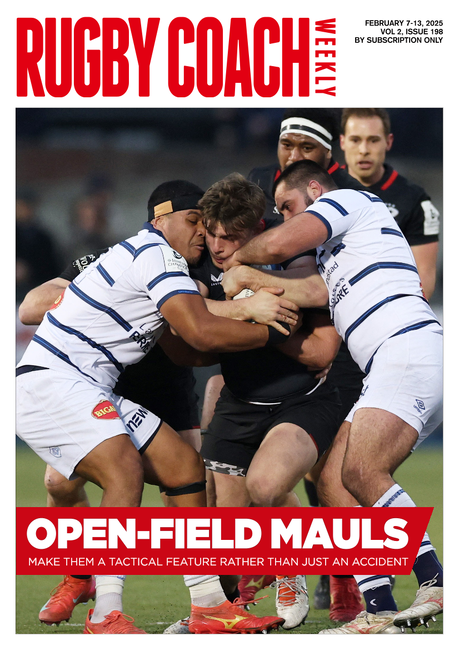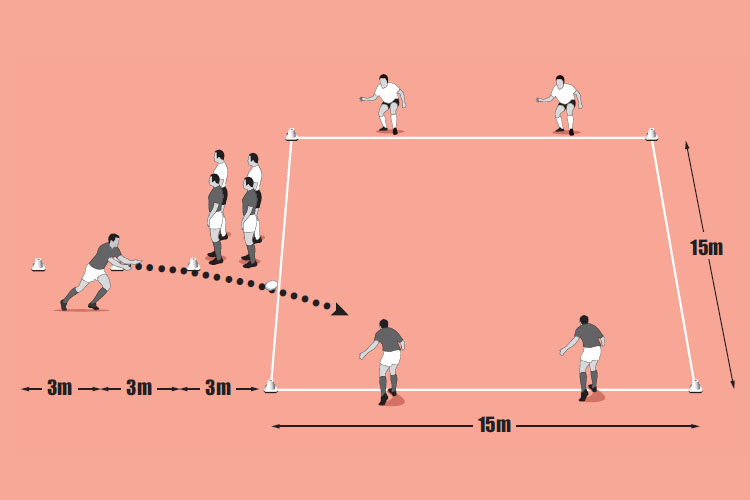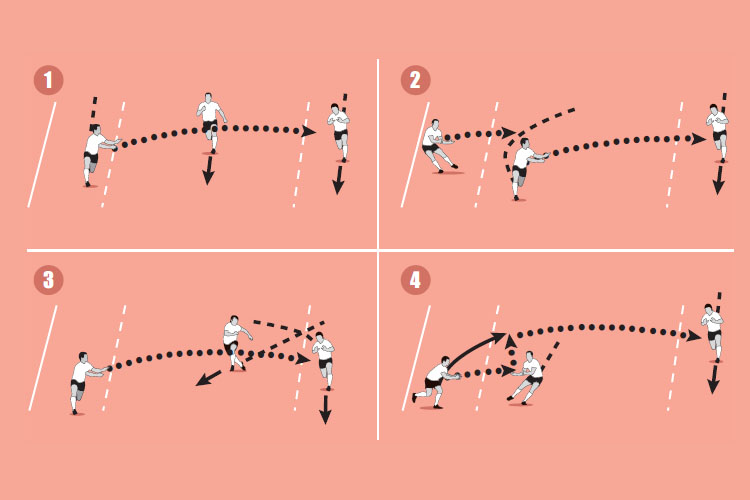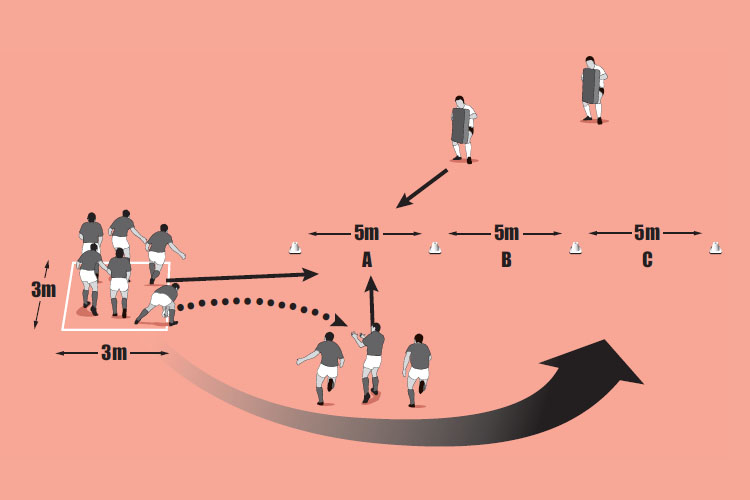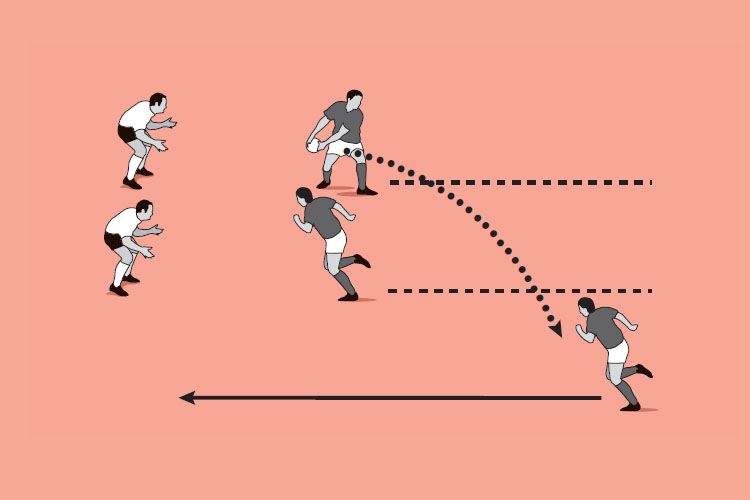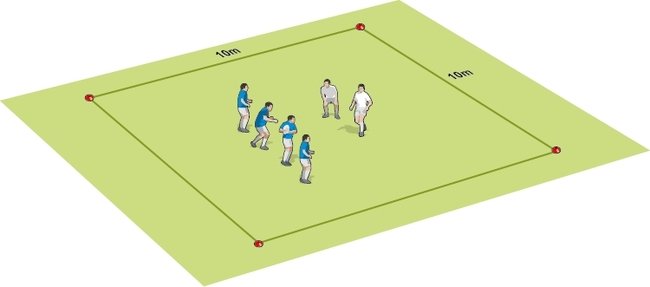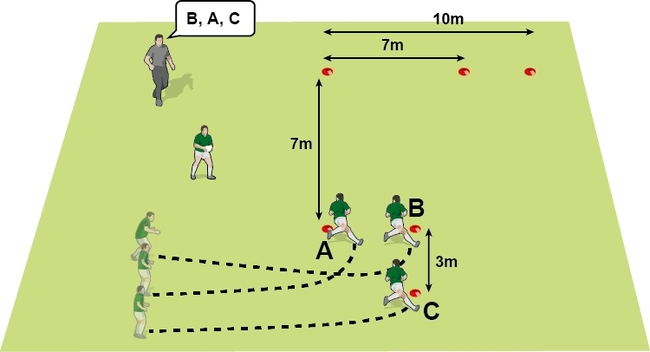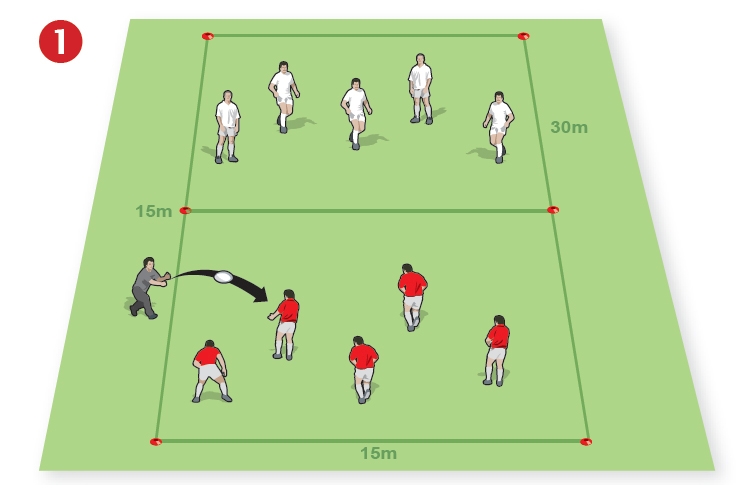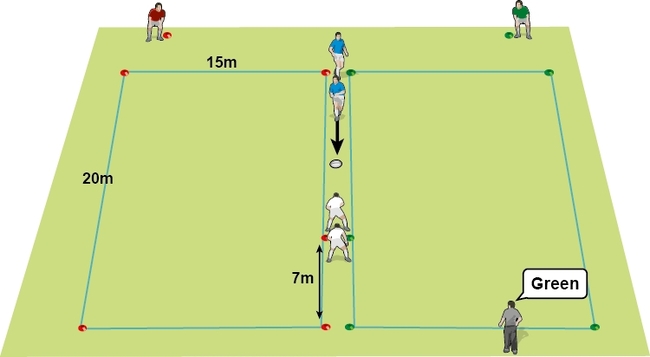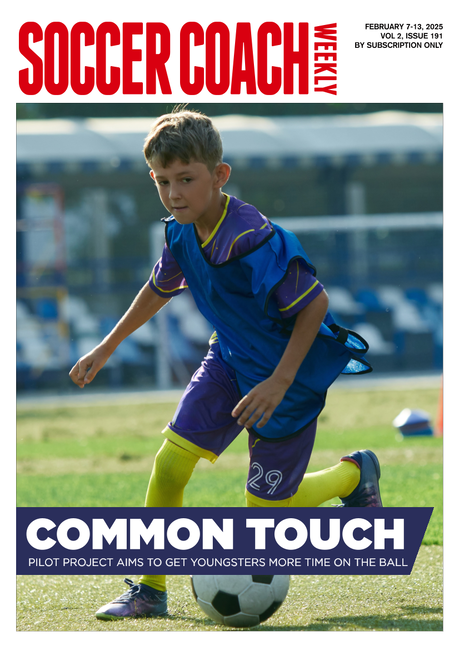Following the pass
The natural reaction of a good player must be that once he passes the ball, he follows the ball. If he can then get outside the player who he passed to, he creates an extra man in attack. Otherwise he is in a good position to support if the receiver goes into contact. This session looks at using the loop to create this extra support player.
Warm up time: 7-10
Session time: 10-15
Development time: 10-15
Game time: 10-15
Warm down time: 7-10
What to think about
- Are the players running at an angle across the pitch once they receive the loop pass? At times, especially if trying to get outside a defender, running this line can be good. However if continuing the passing movement out, the looping player needs to straighten up after receiving the pass to preserve the space on their outside.
- Why do loop passes go to ground more than normal passes? Because the receiver is looping round, he is unseen by the passer until late on. Good communication by the receiver is crucial as he can help by calling for the ball and asking for a short, long or deep pass.
set-up
- Move the ball to the outside player as quickly as possible while moving forwards at pace.
- After passing, loop behind the other players and take a pass on the outside.
- Communicate to the passer when you want the pass and what type of pass.
- Pass in front of the player you want to loop.
What you get your players to do
Split your squad into three groups of four to six players. Two groups start at one corner of a box with another diagonally opposite. One of the two groups moves forwards and passes the ball to the end player. After each player passes they loop behind the group, joining the end to receive another pass. Once they have crossed the area and reached the opposite group, the ball is passed over to the second group to repeat the exercise in the opposite direction.Development
- Miss and loop:Use a miss pass for the first pass, with the second player looping round and taking a pass between the third and fourth player. The fourth player runs wide to create space before coming in to take pass to straighten up.
- Creating an extra player:Add an equal number of defenders and ask the players to solve the problem of creating an extra player.
Related Files
Game situation
Split your team into even groups of no more than five players. Two teams start in the box playing touch rugby. If a try is scored then the scoring team stay on, and another side take the place of the losers. The main condition is that a player must follow his pass. If he doesn’t, then his team are substituted.What to call out
- “Go forward then pass”
- “Pass in front of the receiver so he has to move onto the ball”
- “When looping, run in an arc to keep your speed”
- “Straighten up when you get the ball to create space outside”
Newsletter Sign Up
Coaches Testimonials

Gerald Kearney, Downtown Las Vegas Soccer Club

Paul Butler, Florida, USA

Rick Shields, Springboro, USA

Tony Green, Pierrefonds Titans, Quebec, Canada
Subscribe Today
Be a more effective, more successful rugby coach
In a recent survey 89% of subscribers said Rugby Coach Weekly makes them more confident, 91% said Rugby Coach Weekly makes them a more effective coach and 93% said Rugby Coach Weekly makes them more inspired.
Get Weekly Inspiration
All the latest techniques and approaches
Rugby Coach Weekly offers proven and easy to use rugby drills, coaching sessions, practice plans, small-sided games, warm-ups, training tips and advice.
We've been at the cutting edge of rugby coaching since we launched in 2005, creating resources for the grassroots youth coach, following best practice from around the world and insights from the professional game.
